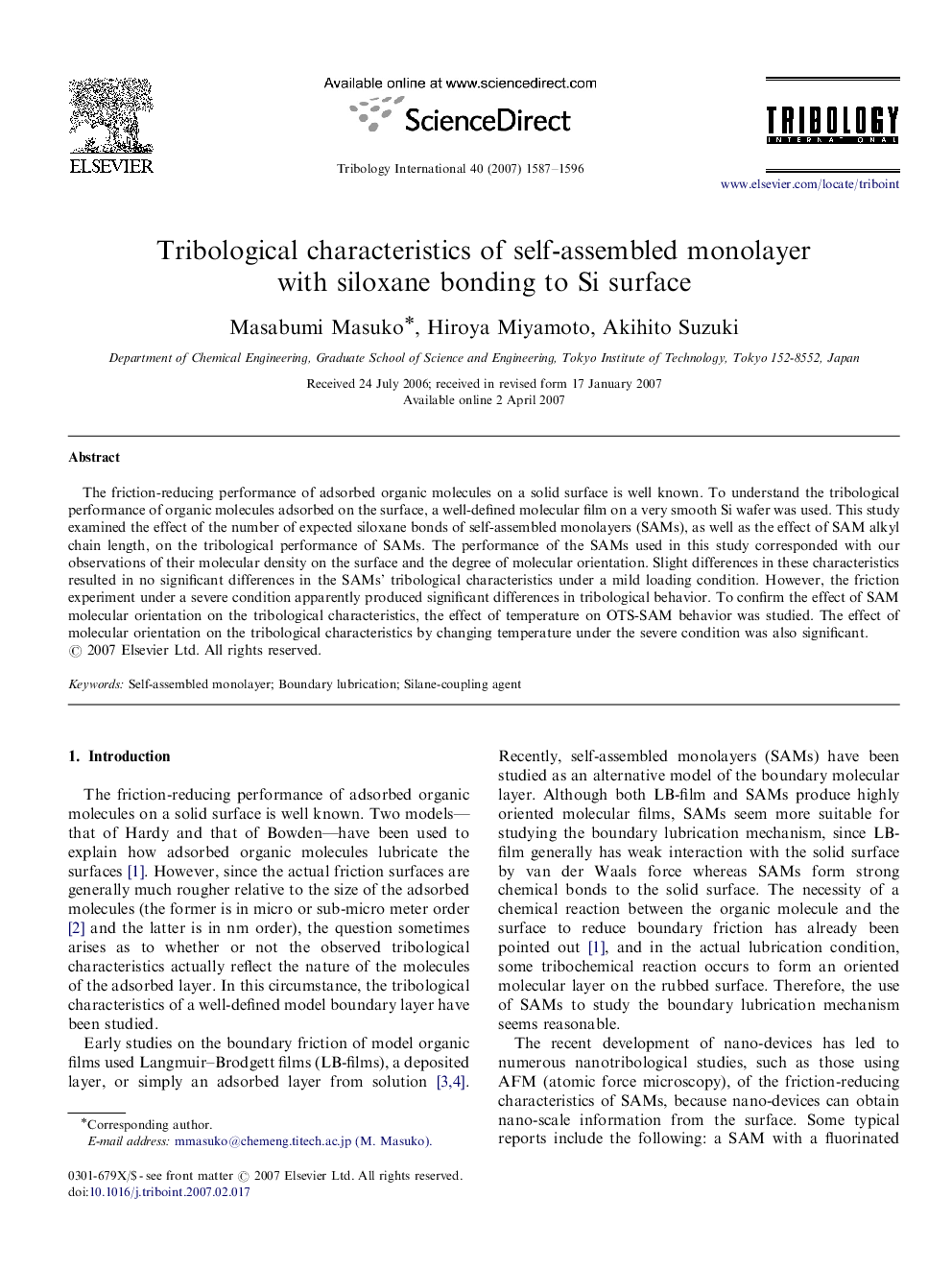| Article ID | Journal | Published Year | Pages | File Type |
|---|---|---|---|---|
| 616594 | Tribology International | 2007 | 10 Pages |
Abstract
The friction-reducing performance of adsorbed organic molecules on a solid surface is well known. To understand the tribological performance of organic molecules adsorbed on the surface, a well-defined molecular film on a very smooth Si wafer was used. This study examined the effect of the number of expected siloxane bonds of self-assembled monolayers (SAMs), as well as the effect of SAM alkyl chain length, on the tribological performance of SAMs. The performance of the SAMs used in this study corresponded with our observations of their molecular density on the surface and the degree of molecular orientation. Slight differences in these characteristics resulted in no significant differences in the SAMs' tribological characteristics under a mild loading condition. However, the friction experiment under a severe condition apparently produced significant differences in tribological behavior. To confirm the effect of SAM molecular orientation on the tribological characteristics, the effect of temperature on OTS-SAM behavior was studied. The effect of molecular orientation on the tribological characteristics by changing temperature under the severe condition was also significant.
Related Topics
Physical Sciences and Engineering
Chemical Engineering
Colloid and Surface Chemistry
Authors
Masabumi Masuko, Hiroya Miyamoto, Akihito Suzuki,
